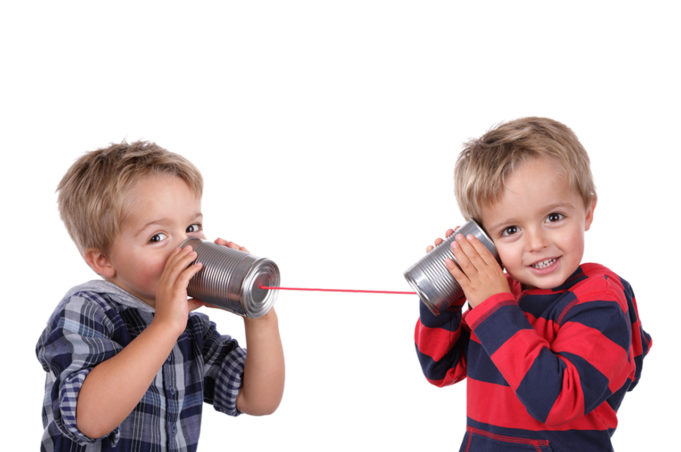I had been about five months into testosterone. One night as my boyfriend and I were in the car, leaving the mall, my phone rang. It was a number I didn’t have saved from another state. Sighing, and thinking it was one of those phony “we need to discuss your credit” recorded calls, I answered.
“Hello?”
“Hi,” said a small voice. “May I speak to [birthname]?”
My heart fell straight into my stomach. The state that the number was from and the child’s voice suddenly made sense- it was my six-year-old cousin, the one I’d been struggling with figuring out how to come out to. For identity protection, I’m going to refer to him as Tommy.
I swallowed the lump in my throat and felt the color drain from my face. “Speaking…”
There was a moment of silence, and I could sense his confusion. The last time he’d seen me in person was before I began testosterone. “Oh, okay.” he said, shrugging off my voice change. He then began to prattle on about some Disney thing he’d gone to earlier that day, with his mom chiming in now and again in the background, reminding him about certain parts of the day to tell me about. As much as I love Disney, my cousin, and how excited he always was to tell me all about things in his life, I couldn’t register many words. I felt cornered and panicked.
“Listen, little buddy,” I said. “As much as I’m happy to hear from you, my phone is about to die. I’ll talk to you soon, though, okay?”
“Okay! Bye!” he said before hanging up.
I sat back and just tried to get my heart to stop pounding as I relayed what had just happened to my confused boyfriend in the driver’s seat.
“I had been struggling with how to talk to my young cousin well before I began HRT.”
I had been struggling with how to talk to my young cousin well before I began HRT. He had come into my life as a tiny baby and I had watched him grow. He clearly admired me- he insisted on having my senior year school photo on the family refrigerator, his mom called the day after we’d been at the house for one of his birthdays saying he was looking for me. I was worried about his acceptance of me, as well as from his parents.
There is a debate about how and when to explain to children what transgender means. There are parents who will openly and simply explain “some boys feel like girls inside, and some girls feel like boys inside. So they change so everyone else can see that.” Sadly, some parents will say these people are “mentally ill” and that you can’t change your gender.
For some kids, they are lucky enough to have someone who is transgender in their life to talk to further and make the information easier to swallow. Some have someone in their life who had transitioned long before they came along or could remember the difference, for others they have someone who transitions before their eyes, like Tommy has with me. Of course there are others who go through childhood having no clue as to what that is and no one who is going through transition.

As for my own situation, when we got back home, I sat down at my laptop and opened up a blank email message. I stared at the blank message for a while before I started typing out the whole story to Tommy’s parents. Once I began, I didn’t stop until everything was on the message. Taking a deep breath, I clicked send.
The time between sending the message and receiving their reply was agony. I was scared of being rejected completely and them telling Tommy some horrific lie or close-minded view about being transgender; some even believe that telling a child about anything LGBT related will “inspire” them to become gay or transgender.
The reply came in the morning. To my utter relief, his parents had said it was nothing to worry about and they were proud of me for being able to become who I truly was. I had suggested to them in my initial email to get the book I Am Jazz and explain to Tommy that this was me, but the opposite. They agreed that it was a good idea to get the book.
A child’s opinion of transgender people can vary. Most children will reflect their parents’ opinions, as they do on many subjects. But whether that opinion is good or bad, children listen and learn quicker than we give them credit for. They also understand more than we think they do. My favorite example of a child’s understanding is from a babysitter who posted about a child they babysit. The child showed them a painting in his room, done by his mom’s friend. He then explained that she “used to be a boy, but felt unhappy, so she takes medicine to help her be a girl.” From a short documentary I’ve viewed a few times online about a ten-year-old transgender girl, when she came out, her classmates seemed to accept her pretty easily.
Obviously, that’s not true in all cases. Like I mentioned, parental influence plays a huge role in a child’s acceptance and understanding of a topic. Children mostly look to their parents, or parental figure for answers to questions that confuse them. If a parent has a positive outlook on a topic, the child will likely have the same outlook. Many times, a transgender child has been ostracized by their peers, based on the anger and concern of the parents of said peers.

But then there are those who are unsure about how to approach the topic with a child. Many of those parents avoid talking about it and leave the child to grapple with what’s in front of them by themselves. They will then likely follow whatever the majority of the crowd is saying or doing in regards to the subject. Depending on the crowd’s influence, that can lead to good or bad results.
“So how do we address the subject of transgender people when talking to children?”
So how do we address the subject of transgender people when talking to children? Though I have yet to have kids of my own, from what I’ve seen in my own life and through research, I feel it’s best to explain the basic idea of “on the outside, he looked like a girl, but he’s really a boy” and as they grow, let them know the details of what that carries with it. (Keep in mind that even if the child can accept and understand the basic idea, the child might not yet be able to grasp the pain of gender dysphoria and the constant societal rejection, unless they suffer it themselves.)
That seemed to work for Tommy. A few days before coming to the house for his seventh birthday, I got an email from his parents explaining that they had told him my name was different, my voice was deeper, and that I now had facial hair. They told him I’m now a “he”.
The minute I walked in the door, he came running over and said, “Hi, [birthname]!” and when I corrected him, he corrected himself. Then before I knew it, he was showing me his latest favorite toy and getting my boyfriend and I (whom he’d met the year before) to play games like he always does.

At some point, I managed to speak to his mom in private. She said she and his dad hadn’t figured out a way to tell him what the term “transgender” means, but he seems to grasp the basics of what I’m going through. Of course, it’s all still new to him. The only exposure to the LGBT community he’d had before was that one of his classmates had two mothers, (which was oddly enough, my first exposure to it as well when I was about his age.) but it didn’t seem to bother him. She said she’d ordered the book, but was waiting for a good time to be able to tell him everything.
When I went to thank his dad for understanding before we left the house later, he stopped me mid sentence and asked, “Hey. Are you family?” to which of course I nodded. “Then what’s the issue?”
There isn’t an issue with a relative of a child being transgender. There shouldn’t be an issue, but with the mindset of some people around the child, an issue could be fabricated. When faced with telling a child what transgender means, we should accompany the basic idea that I mentioned with a reminder for them to stick up for those being harassed for who they are, not be afraid of someone who’s different and to teach their peers that it’s not a bad thing for someone to be transgender. You never know what your influence will do for someone you may not even be aware it touches. As Stephen Sondheim wrote in his musical, Into the Woods, “Careful the things you say. Children will listen.”
































